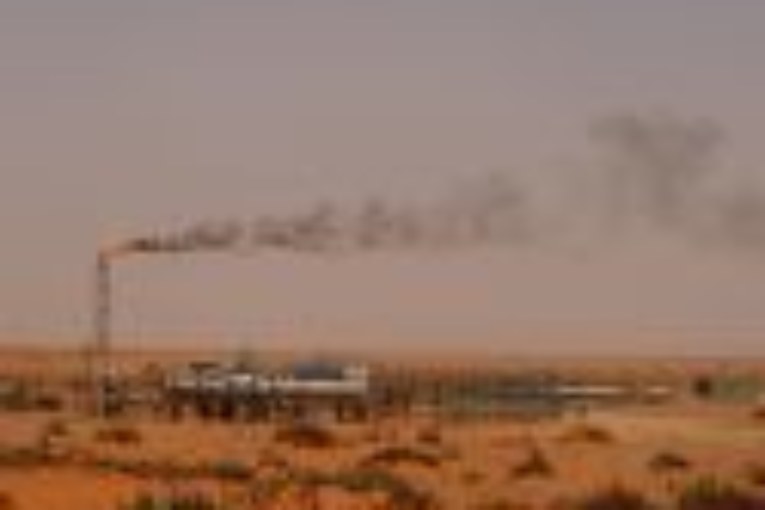
The highly anticipated IPO of Saudi Aramco may be behind rising oil prices, with analysts suggesting a deliberate attempt on the part of the Saudi regime to goose the value of the offering. If so, Aramco’s IPO could itself pop the bubble it’s now helping to create — putting newly viable oilsands projects in jeopardy.
The price of Brent crude has risen over 20 per cent, to US$79 a barrel, since March 11, when Riyadh announced it would be delaying until 2019 the IPO of state-owned Saudi Aramco, the world’s largest company. A month later, the Saudis stoked speculation even further when rumours emerged that the regime would be happy to continue to limit its own supply until prices reached US$100, even if American shale producers used the opportunity to steal market share.
Thomas Nichols, associate economist at Moody’s Analytics, said all the commotion has left oil prices “slightly inflated” for the moment, and that has played into the hands of Canadian oil producers, with the capped energy index rising 22 per cent since Riyadh started making waves.
But if political turmoil and speculation lift oil prices to triple digits, a painful correction may be inevitable.
“At the current price point, a lot of the more expensive projects in the oilsands are starting to become profitable,” said Nichols. “If the price comes tumbling down, that puts a lot of that investment in danger, which could have a negative impact on oil company shares.”
To be clear, Nichols doesn’t think such a scenario is likely. He thinks a surge in supply from Western producers will bring prices back into line before the Aramco IPO. Still, he thinks Canadian investors riding oil’s upward trajectory should be mindful of the risks.
No date has been set for the IPO, but when Saudi Arabia finally does pull the trigger, it will no doubt mark a historic occasion. Aramco is estimated to be worth US$1.5 trillion, and the Saudis have expressed a willingness to sell as much as five per cent of its equity, worth approximately US$75 billion. That would easily make it the biggest IPO in history, with the Chinese runner-up Alibaba Group pulling in US$21.8 billion in 2014.
A publicly traded Aramco will pull some investment capital away from Western energy stocks, Nichols said, but even such an enormous offering wouldn’t be enough to precipitate a sector-wide re-pricing. Rather, according to Omar Al-Ubaydli, program director at the Bahrain Center for Strategic, International and Energy Studies, Aramco will give retail investors an entryway into the Saudi economy, where low-cost production and unusually centralized governance may be the recipe for long-term growth.
flame from a Saudi Aramco oil installion known as “Pump 3” is seen in the desert near the oil-rich area of Khouris.
“It’s more of an investment in the Saudi economy than an investment in oil,” he said. “If you want to invest in oil and energy, there are lots of other ways to invest in those sectors.
“But if you want to invest in an economy that currently looks very strange and unconventional — and could potentially grow hugely in the next 20 years — then Saudi Arabia and Saudi Aramco is the way to do it.”
Al-Ubaydli said that if Aramco lists publicly — and that’s a big if, given the regime’s recent indications that it may sell the stake privately — most of that capital will come from Chinese and East Asian investors.
That strong interest from China could augur well for a listing on the Hong Kong Stock Exchange, although Al-Ubaydli said London is also a strong contender.
A listing in New York, however, is less likely, given the political baggage. Al-Ubaydli thinks the Saudi government will avoid a listing there given the 2016 passage of the U.S. Justice Against Sponsors of Terrorism Act (JASTA), and the possibility that the legislation, which facilitates civil action against Saudi Arabia for alleged involvement in the September 11 attacks, could be deployed against Aramco assets.
Anything’s possible, though, and investors should be careful not to get caught up in the maelstrom of uncertainty swirling around the IPO, said Al-Ubaydli. With so much money on the table, market commentators are going to be spinning the news furiously to try to skew markets.
“The different sides are going to be trying to move the price in the way that favours them,” said Al-Ubaydli. “Until Aramco makes a statement and releases data, don’t take much of what is being circulated seriously, because there’s so many people who are just talking nonsense.”
What’s more important, Nichols suggests, is not the competition that a publicly traded Aramco’s may represent — but rather the broad capitulation that it represents. The Saudi decision to limit supply, after all, comes at a steep cost, as American shale producers move in to fill the void.
Surrendering global market share for petroleum, however, may give the Saudi government what it really wants: a more diversified economy, as part of Crown Prince Mohammad bin Salman’s Saudi Vision 2030 economic roadmap.
Nichols said it’s not really in the interest of OPEC or the Saudi government to inflate oil prices only to “pull the chair out from under the market.” A small, short-term bubble, however, will allow the regime to maximize the value of a windfall that can be reinvested in other sectors.
“They’re trying to grab some profit now, but I think really the long-term goal of that profit is to invest it in non-oil economic development,” he said.
You can read more of the news on source
